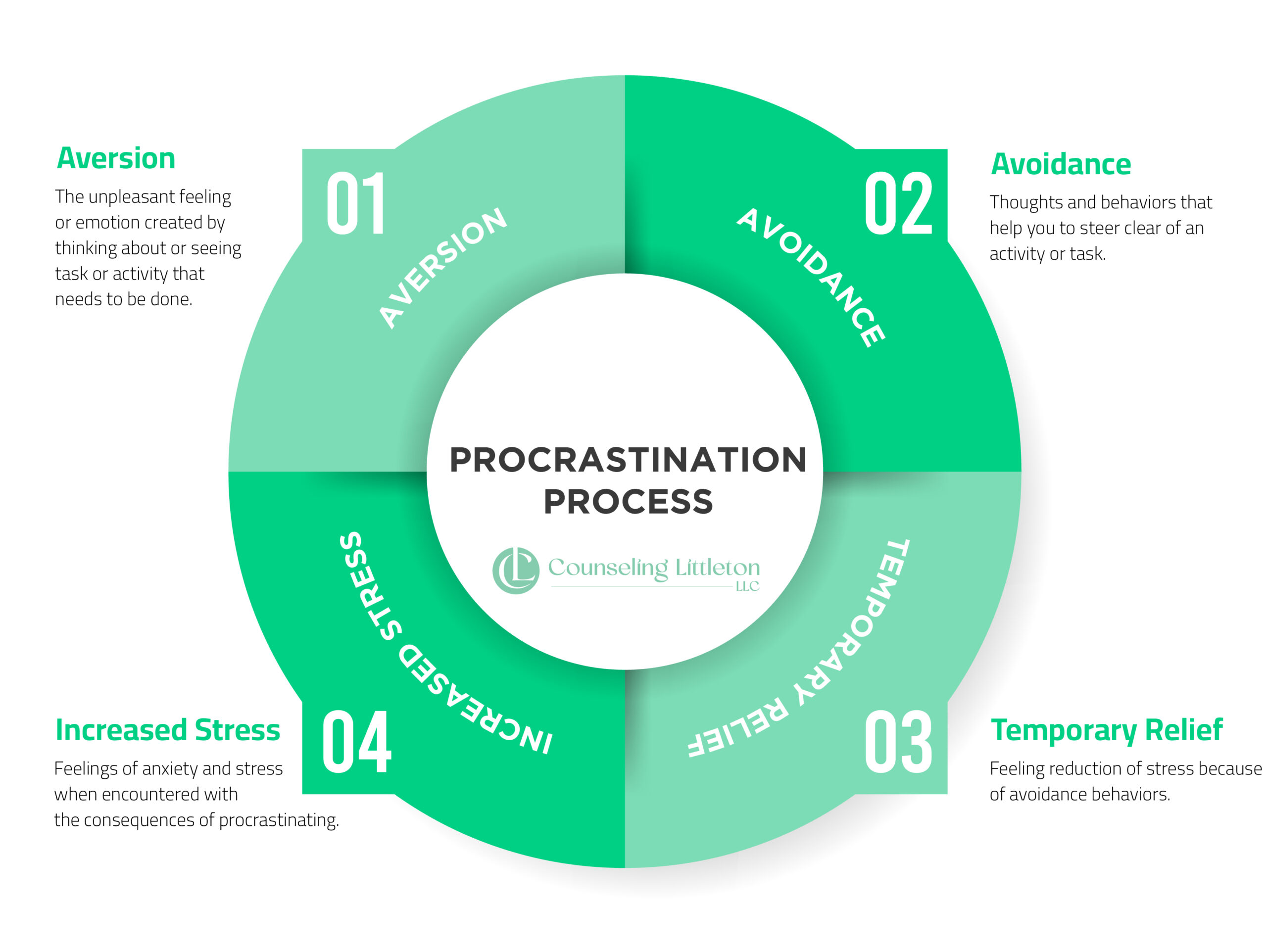ADHD and Procrastination:
Understanding the Connection and Strategies for Overcoming Delay
Understanding the Connection and Strategies for Overcoming Delay
Coping with Attention Deficit Hyperactivity Disorder (ADHD) often means addressing associated challenges, one of which, for many individuals, is habitual procrastination.
However, a deeper understanding of why this connection exists and equipping yourself with effective strategies to combat these tendencies can enable you to turn perceived obstacles into moments of productivity.
This substantial shift can bring about improved well-being as tasks are accomplished in prudent time frames, fostering overall personal growth and satisfaction.

The Link Between ADHD and Procrastination
While not directly connected, ADHD and procrastination often go hand-in-hand due to some of the symptoms of ADHD. For example, symptoms like struggling with sustained attention, time management issues, or impulsive behavior are common characteristics seen in people suffering from this disorder. These factors often make task initiation and completion burdensome for individuals with ADHD. Subsequently, they frequently delay or put off tasks, as maintaining consistent focus can be difficult, and many tasks can feel overwhelming due to the significant mental effort required.

Procrastination is an Avoidance Behavior
Procrastination, at its core, is a form of avoidance behavior—manifesting when tasks or duties produce feelings of discomfort or anxiety. In short, it’s easier to put off an impending task perceived as challenging than deal with the uneasy emotions experienced while tackling it head-on.
Even routine chores can be overwhelming due to their difficulties in concentrating for extended periods on one specific task, triggering significant stress.
For individuals with ADHDwho often struggle more than most with issues relating to focus and emotion regulation, the likelihood of deploying procrastination and avoidance techniques can be higher.
Strategies to Overcoming Procrastination
In managing ADHD-related procrastination, a combination of self-help strategies and professional guidance can often provide relief.
External Structures and Reminders
Using tools like alarms, calendars, or task lists for keeping track of responsibilities can be helpful. Establishing routines also lends a sense of order which can help individuals avoid feeling overwhelmed, resulting in better productivity.
Breaking Tasks into Manageable Steps
Decluttering projects by breaking them down into smaller tasks that are easier to handle often lessens feelings of being overwhelmed, leading to less procrastination.
Self-Compassion and Mindfulness
Realize that everyone procrastinates sometimes and don’t be overly hard on yourself when you slip up. Practice mindfulness techniques such as meditation or focused breathing exercises to stay ‘present’ which can help prevent you from falling victim to distractions, leading to less procrastination.
Counseling for ADHD-Related Procrastination
As a crucial step towards managing ADHD-related procrastination, counseling or therapy can provide effective tools and strategies. Here are some ways it can help:
Enhance Time Management Skills
Through sessions, you can learn practical skills meant to boost organization and planning, providing more control over how your day unfolds.
Improve Emotional Regulation
Counselors often focus on techniques helping manage emotions typically associated with seemingly daunting tasks, effectively diminishing the appeal of delaying them.
Introduction of Cognitive Behavioral Therapy
Cognitive-behavioral therapy (CBT) is frequently employed to alter thought patterns causing irrational fears or anxieties—with CBT’s proven track record in addressing ADHD symptoms, it could be the key to overcoming procrastination.